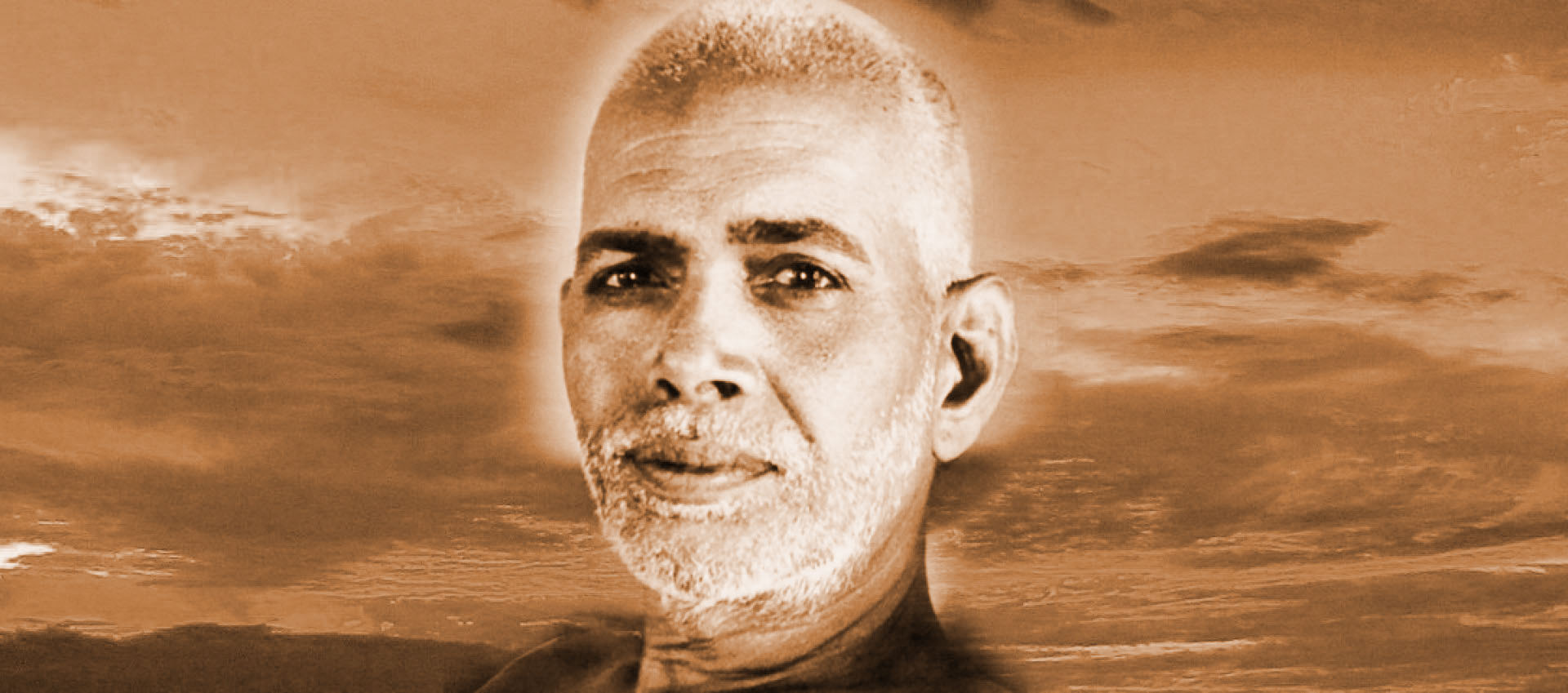
Guest to see Maharshi
Mr. Douglas Ainslie (Mr. Grant Duff), an aristocratic English gentleman, 70 years old, nephew of a former Governor of Madras, an author and poet formerly attached to the British Legation in Athens, Paris and The Hague, had come to Madras as a guest of Government House. He came to see Maharshi with a letter of introduction from Paul Brunton. Next day he returned and remained a little less than an hour in the hall. On both days practically no words were exchanged, only gaze meeting gaze. His habits are abstemious; he remains without food of any kind till 1 p.m. and then lunches; he is said to have coffee and biscuits in the evening and retires without any further food.
He has been a bachelor all along, walks a few miles a day on an empty stomach, speaks little and is very graceful in his movements. His voice is low and soft and his words appear to come from the heart. He has friends among whom might be counted the late Sir John Woodroffe, Sir Sarvapalli Radhakrishnan and Prof. Thomas, Sanskrit Professor in Oxford University. He expressed a desire to hear the Vedas. On Monday a letter arrived from Riga and the questions therein happened to coincide with the questions the European visitor had asked relating to the existence of departed souls and how best to serve them.
The reply sent to Riga was read out to him. Tamil songs from Maharshi’s “Truth Revealed” and the Vedas were repeated in his presence. He considered the recitations magnificent. He came the next afternoon and to the wonder of others, had an experience on the previous night which he repeated to Maharshi. It was that he had seen something like an electric light within himself in the heart centre on the right side. And he added further that he had seen the sun shining within. Maharshi smiled a little and then had a translation of “Atmavidya” (Self-Knowledge) read out to him wherein there is the cryptic saying that realization consists in reaching the Atman (Self) which is the expanse of consciousness (chidvyoman) as distinguished from the mind which is the expansion of chittavyoman (mind consciousness). This explanation appealed to him.
Speaking of him later, Maharshi remarked, “Just think of an old man of 70 not choosing to live peacefully in his own house on the income he had earned! How intense has been his earnestness that he has left his native land, dared a sea-voyage of 6,000 miles, and faced the hardships of long railway journeys in a foreign land, ignorant of the language, undergoing the vicissitudes of a lonely life, submitting to the inclemency of a hot climate, in surroundings uncongenial and unaccustomed to him. He could have been happy in his own house. It is his longing for internal peace that has brought him here.”
Quite so. The intensity of his earnestness is revealed by his illuminating experiences here within four days of his arrival, people say.
Talks With Ramana Maharshi – Part 1
January 19, 1935
Talk 16.

